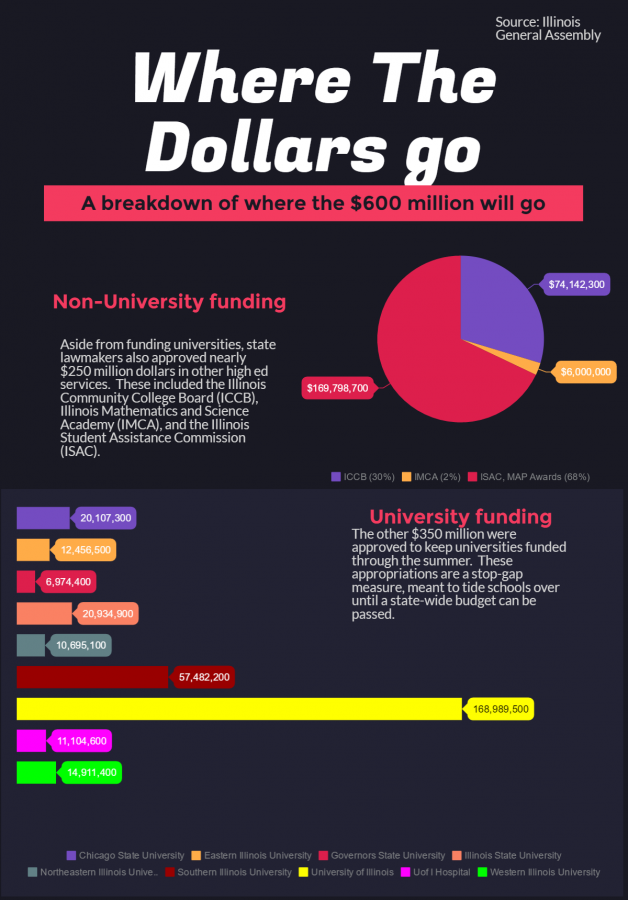NEIU Receives Emergency Funds from State
More in News
After a nearly year-long battle to approve a state budget, Illinois lawmakers have passed a stop-gap spending bill to fund universities, allowing NEIU to temporarily suspend cuts and other cost saving measures.
The bill was signed by Republican Governor Bruce Rauner on April 25, after the bill was passed in both the state’s assembly and senate the previous week.
Illinois has been without a budget since July 1, 2015, leaving public universities to financially fend for themselves. While the Democrat controlled state advocate for spending on public and social services, Rauner has pushed for less spending, as well as a budget that would curb unions’ powers and business reform.
In a statement Rauner said, “This legislation doesn’t solve our budget crisis or help our economy grow, but it does represent a first step toward compromise between Democrats and Republicans.”
Despite the spending approval, Illinois universities have already suffered financially. Just a week after the bill’s passing, Chicago State University announced that it would be laying off about a third of its staff. Over 300 employees were let go, though much of the faculty remained untouched.
NEIU itself has seen its own challenges in the form of furloughs and spending freezes. Staff and faculty affected by the furloughs generally saw 20 percent reduction in payment, as many were required to take one furlough day out of the five-day work week.
The spending bill approves $600 million for universities, with $170 million set aside for Monetary Award Program grants. NEIU is set to receive about $10.7 million for funding. An email on April 27 from university President Sharon Hahs to students and staff noted that the funds “falls short of what the University needs.” In that same email Hahs also announced that the university would be suspending cost-savings program and furloughs.
In an interview on May 9 with WBEZ, Hahs also said the suspension is only temporary. The cuts are likely to return in July.
“They can’t quit with the stop-gap money,” Hahs said. “We do need a real appropriation.”
The constitutional deadline for state politicians to pass a budget for the next fiscal year is May 31. Though Rauner has expressed he feels a deal is close, other lawmakers predict that the impasse may last until after the presidential election in November.
Your donation will support the student journalists of Northeastern Illinois University's The Independent, either in writers' payment, additional supplies and other items of note. Your contribution will allow us to purchase additional equipment for writers/photographers/illustrators and cover our annual website hosting costs.
Luis Badillo








